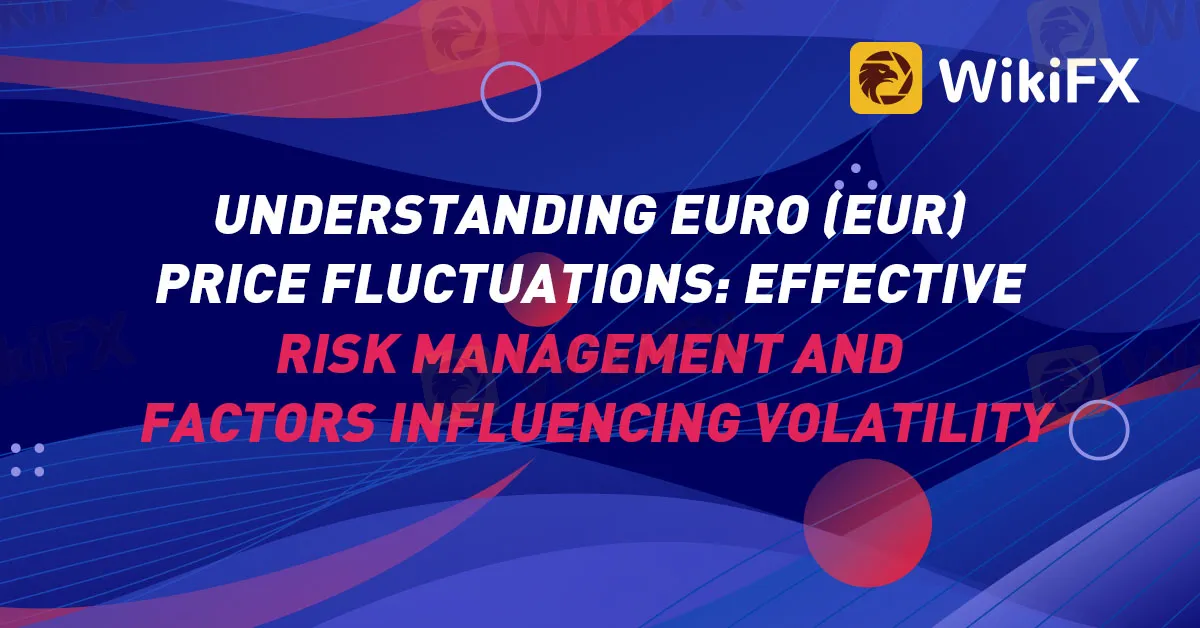简体中文
繁體中文
English
Pусский
日本語
ภาษาไทย
Tiếng Việt
Bahasa Indonesia
Español
हिन्दी
Filippiiniläinen
Français
Deutsch
Português
Türkçe
한국어
العربية
UNDERSTANDING EURO (EUR) PRICE FLUCTUATIONS
Abstract:Staying informed about currency price changes is crucial for informed decision-making in the fast-paced forex market. The Euro (EUR) is a major currency, attracting global traders and investors. As the second most-traded currency, its performance influences global markets and economies.

Staying informed about currency price changes is crucial for informed decision-making in the fast-paced forex market. The Euro (EUR) is a major currency, attracting global traders and investors. As the second most-traded currency, its performance influences global markets and economies.
This article provides valuable insights into the EUR, highlighting recent performance and factors impacting price fluctuations. Monitoring EUR price movements with future projections, for navigating the volatile forex trading world.
Current EUR Performance: The recent halt in the euro's upward momentum can be attributed to overbought conditions, extended posture, and concerns about the upcoming US Federal Reserve meeting. However, this retreat does not necessarily indicate the end of the advance for EUR/USD.
The EUR/USD has experienced significant growth over the past six months, marking the most substantial movement since 2017. This robust performance suggests promising medium-term prospects. However, as market trends tend to revert to the mean, gains may slow down or reverse in the near future. Recent macroeconomic indicators for the Euro area have been disappointing, with a decline in industrial output, particularly in capital goods production.
While the ECB maintained a hawkish stance in its recent meeting, the US Federal Reserve's shift toward a more hawkish outlook has prompted a reassessment of the expected pause at the June meeting. Market indicators suggest an increased likelihood of a 25 basis point rate hike by the Federal Reserve in June, according to the CME FedWatch tool.
In conclusion, despite recent setbacks, the longer-term outlook for the euro remains favorable. Monitoring economic statistics, central bank policies, and market sentiment is crucial for assessing the future path of the EUR and its impact on currency pairs.
Factors Influencing EUR Price Volatility: EUR price volatility is influenced by several key factors in the foreign exchange market. Here are the primary factors:
Economic Data and Monetary Policy: Key economic indicators such as GDP growth, inflation rates, employment data, and central bank interest rate decisions significantly impact the performance of the Euro (EUR).
Political and Geopolitical Developments: Political events within the Eurozone and globally can affect the value of the EUR. Trade disputes, policy changes, elections, and geopolitical tensions contribute to volatility and uncertainty, influencing the currency's performance.
Market Conditions and Risk Sentiment: Investor sentiment and market conditions play a crucial role in determining the attractiveness of the EUR. These factors shape the perception and demand for the currency in the forex market. During uncertain economic times, the value of the Euro relative to other currencies may fluctuate as traders seek safe-haven assets.
Trading any currency involves inherent risks, and the forex market's rapid price fluctuations necessitate cautious and prudent trading practices.
Additionally, geopolitical events, unexpected economic data releases, and sudden shifts in market sentiment can contribute to significant EUR pair price volatility.
Traders employ various risk management techniques, such as stop-loss orders, portfolio diversification, and staying informed about market events. Implementing these strategies helps protect capital and make well-informed trading decisions based on market conditions. Monitoring economic data, central bank statements, and political developments that may impact the value of the Euro is crucial.
Trading the EUR presents profitable opportunities along with challenges. By applying effective risk management techniques and understanding the factors driving price movements, traders can navigate the market successfully.

Disclaimer:
The views in this article only represent the author's personal views, and do not constitute investment advice on this platform. This platform does not guarantee the accuracy, completeness and timeliness of the information in the article, and will not be liable for any loss caused by the use of or reliance on the information in the article.
Read more

The Impact of Interest Rate Decisions on the Forex Market
Interest rate changes determine currency attractiveness, influencing capital flows and exchange rate trends. Understanding this mechanism helps investors navigate the forex market effectively.

March Oil Production Declines: How Is the Market Reacting?
Oil production cuts in March are reshaping the market. Traders are closely watching OPEC+ decisions and supply disruptions, which could impact prices and future production strategies.

How to Calculate Leverage and Margin in the Forex Market
Leverage amplifies both potential profits and risks. Understanding how to calculate leverage and margin helps traders manage risks and avoid forced liquidation.

RM1.29 Million Lost in ‘C Baird VIP’ WhatsApp Scam
A 43-year-old company auditor and subcontractor in Malaysia became the latest victim of an elaborate investment scam after losing RM1.29 million to a fraudulent scheme promoted via WhatsApp.
WikiFX Broker
Latest News
TradingView Brings Live Market Charts to Telegram Users with New Mini App
Trump tariffs: How will India navigate a world on the brink of a trade war?
Interactive Brokers Launches Forecast Contracts in Canada for Market Predictions
Authorities Alert: MAS Impersonation Scam Hits Singapore
Stocks fall again as Trump tariff jitters continue
INFINOX Partners with Acelerador Racing for Porsche Cup Brazil 2025
Regulatory Failures Lead to $150,000 Fine for Thurston Springer
April Forex Trends: EUR/USD, GBP/USD, USD/JPY, AUD/USD, USD/CAD Insights
March Oil Production Declines: How Is the Market Reacting?
Georgia Man Charged in Danbury Kidnapping and Crypto Extortion Plot
Currency Calculator







